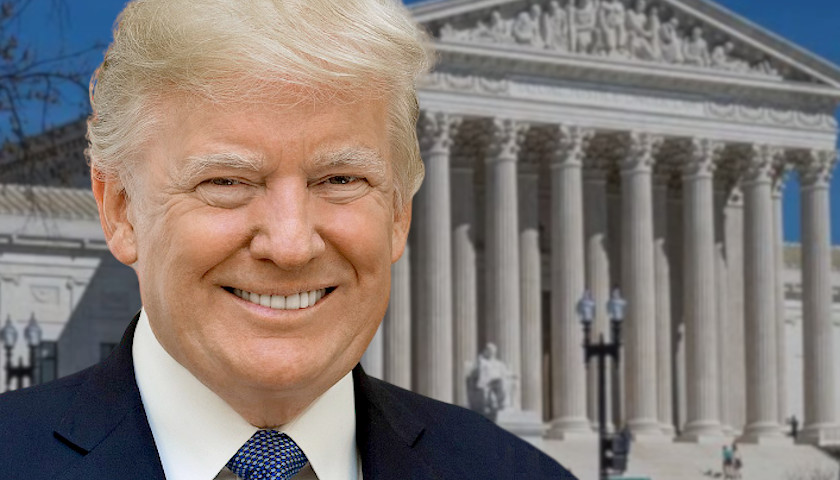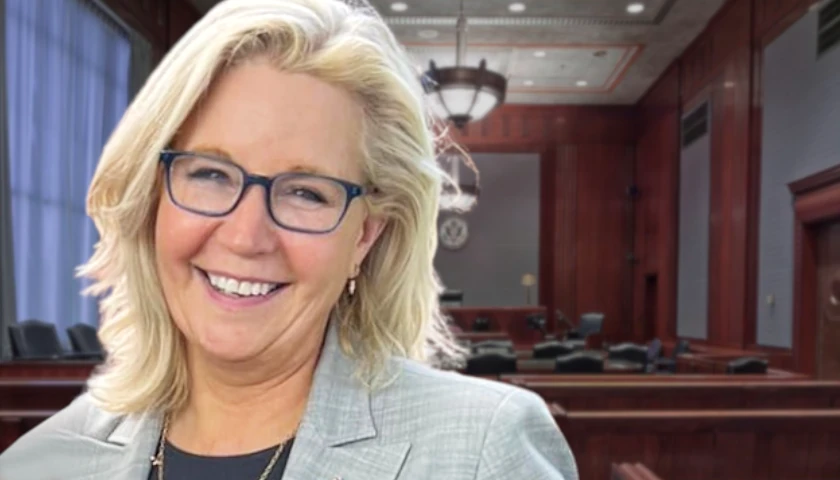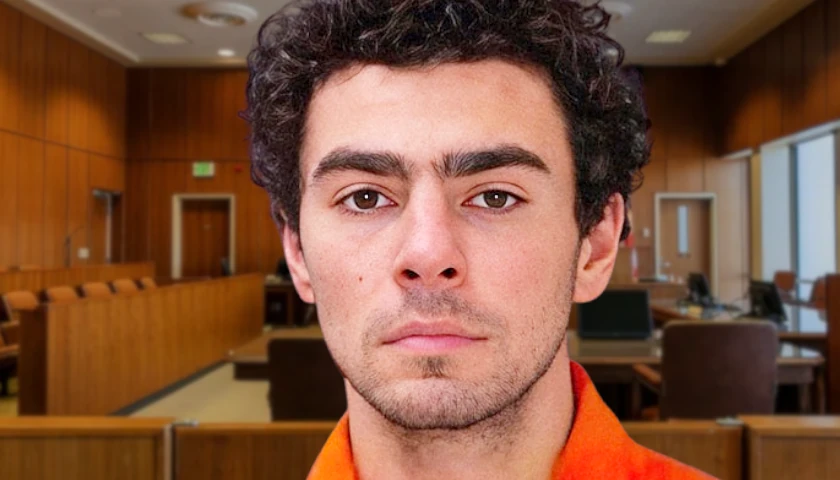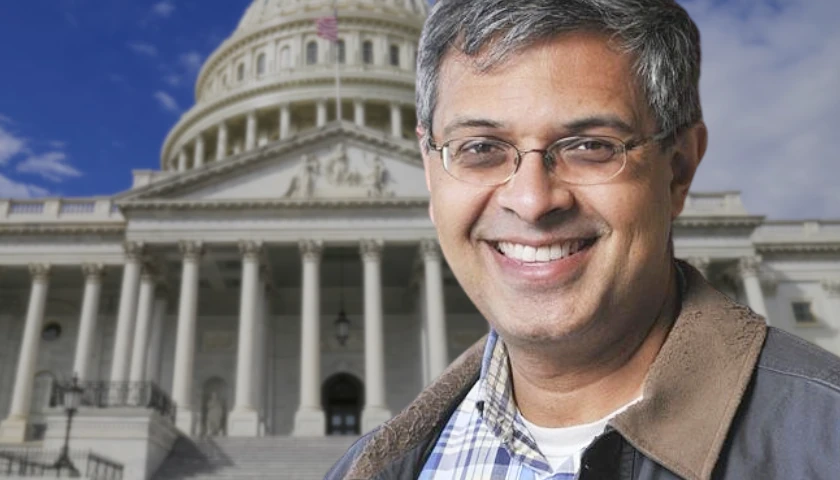by Ken Masugi
The Supreme Court has always been an anomaly in our democratic republic. This now-powerful body meets in secret, wears uniforms, and has life tenure. The nine-member court has issued rulings explaining how Americans need to alter their views about everything from sex to taxes, affecting the rights of presidents and of prisoners. Recent Republican nominees to the court have been the unjustified targets of fierce fights, with Democrats making wild charges and ad hominem attacks. Of course, Joe Biden and his crew have put the court on notice that they will pack it, when given the excuse.
As though they need bother.
The cumulative effect of these attacks on Republicans and, vastly more important, the country’s constitutional health, is the court’s recent decision to decline taking Pennsylvania Republicans’ lawsuit against their secretary of state. A majority of the court (there was no court opinion, only a one-sentence order and the two dissents) thinks the case is now moot. Apparently, the court believes it is no longer a real case, because the election is now behind us.
Though Justice Samuel Alito (joined by Justice Neil Gorsuch) soberly dissented, one sees from dissenter Clarence Thomas’s opinion the horror of what was really going on. (Both dissents can be found here.) If the court keeps avoiding the tough questions as it has here, it may as well do exactly what the Left in this country wants: cease to exist as a constitutional force in our republic and allow the unaccountable administrative state to continue its rule over American lives, great and small.
To pursue institutional loyalty (the “passive-aggressive virtues” in the case of the court, “the best traditions of the Senate,” in the words of minority leader Mitch McConnell) means constitutional death.
Contrary to the Democrats’ demagoguery, Justice Thomas argued to hear the case based on Pennsylvania’s denial of the Constitution’s requirement that state legislatures have authority “to determine the ‘Manner’ of federal elections. . . . Yet both before and after the 2020 election, nonlegislative officials in various States took it upon themselves to set the rules instead.” The case is not about federalism but constitutionalism.
Against “an unambiguous deadline for receiving mail-in ballots: 8 p.m. on election day,” the Pennsylvania Supreme Court extended that deadline by three days and without evidence that the ballots were mailed by election day. Thomas allows that the rule may not have affected enough ballots to change the outcome of the 2020 presidential election but “that may not be the case in the future. These cases provide us with an ideal opportunity to address just what authority nonlegislative officials have to set election rules, and to do so well before the next election cycle. The refusal to do so is inexplicable.”
May the Pennsylvania Supreme Court alter the state law under some COVID-19 exception? Thomas reminds us that “elections enable self-governance only when they include processes that ‘giv[e] citizens (including the losing candidates and their supporters) confidence in the fairness of the election’ [quoting Justice Brett Kavanaugh from another case].” In this case—as with others—a court thwarted a state legislature. Should we continue to have confidence in elections?
Of course self-governance is the political manifestation of the principle of human equality, on which all our political legitimacy rests. Federalist 44 calls a preference for the authority of the parts against the authority of the whole a prescription for creating a “monster.” Human equality denies the legitimacy of such monsters as rulers. That is what makes ballots preferable to bullets, and why bullets are necessary to destroy monsters.
The courts—and here Thomas appears to be admonishing President Trump’s lawyers as well as the Democratic ones—are “ill equipped to address problems—including those caused by improper rule changes—through postelection litigation.” The strict constitutional deadlines and the Electoral Count Act of 1887 (which Trump lawyers pleaded with Vice President Pence to use) leave too little time, a constraint exacerbated by issues involving mail-in ballots.
What’s more, the court is ill-suited to make policy decisions. With the next federal elections less than two years away, now is the time to consider such cases. “Our refusal to do so by hearing these cases is befuddling.” Thomas continues:
One wonders what this Court waits for. We failed to settle this dispute before the election, and thus provide clear rules. Now we again fail to provide clear rules for future elections. The decision to leave election law hidden beneath a shroud of doubt is baffling. By doing nothing, we invite further confusion and erosion of voter confidence. Our fellow citizens deserve better and expect more of us.
Thomas thus gives both the pro-Trump and anti-Trump sides in this litigation needed instruction in the duties of constitutional government.
For the anti-Trump side, he permits their candidate Biden to show how he legitimately could win, even before he unleashes a deluge of illegal voters and corrupt practices. Biden ran a farce of a campaign, which in turn betokens an even worse presidency. (Consider a presidency of a tone-deaf and corrupt Hillary Clinton.) His selections of former Senator Kamala Harris as vice president and the failed South Carolina senate candidate Jaime Harrison for chairman of the Democratic National Committee reflect his own fanaticism about race and the need to placate the man to whom he owes his presidency, the utterly undistinguished Representative James Clyburn (D-S.C.).
As for Donald Trump, such wisdom would have allowed him to spend the last two months of his presidency setting up the Biden Administration for failure by touting his own successful policies instead of being the flustered face of his futile attempts to prove his victory. See Michael Anton’s reflections on the meaning of elections under these circumstances and the battle among pundits to construct reality based on their conceptions about Trump.
Perhaps thinking discretion was the better part of valor, the latest Trump high court appointees, Brett Kavanaugh and Amy Coney Barrett, decided to kick the can down the road. For what, I ask, is Justice Barrett saving herself? And, as a Wall Street Journal editorial pointed out, Kavanaugh had voted in October to hear a pre-election Pennsylvania case. Now, where, the editorial asks, did he “wander off to”? The greater question is where has passion for the constitutional order wandered off to? Dare one side call the other nihilists in such a vacuum? That’s the real war on the court and in the country. It’s not just that the suit of Pennsylvania’s Republican legislature is moot, the Supreme Court itself is now moot, as well as the Constitution it supposedly defends. Aleksandr Solzhenitsyn appears to have been right about America’s shallowness, its lack of courage and depth of soul, at least among its elites. Are we now left, as John Locke asked in his Second Treatise, with only an appeal to Heaven?
– – –
Ken Masugi, Ph.D., is a senior fellow of the Claremont Institute. He has been a speechwriter for two cabinet members, and a special assistant for Clarence Thomas when he was chairman of the Equal Employment Opportunity Commission. Masugi is co-author, editor, or co-editor of 10 books on American politics. He has taught at the U.S. Air Force Academy, where he was Olin Distinguished Visiting Professor; James Madison College of Michigan State University; the Ashbrook Center of Ashland University; and Princeton University.





